The Saanen Dairy Goat Farm, a hidden gem to visit in Balik Pulau

Stories related to goats cut across cultures and geography, conjuring up myths and beliefs that have flowed through millennia right up to this present day. I find these vivid and dramatic tales utterly captivating.
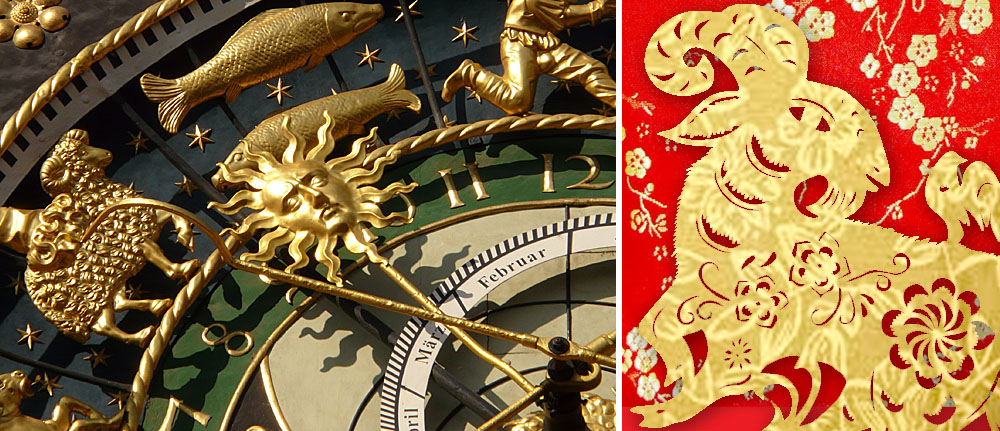
Since the day I was born in January 1968, I was enplaced under the Chinese Zodiac sign of the Fire Goat (9 February 1967 – 30 January 1968). However many of my classmates born after 30 January come under the sign of the Earth Monkey. I was also recognised as a Capricorn, the tenth sign in a more ancient Zodiac cycle (22 December – 19 January). On a few birthdays, I have received gold pendants in the shape of a goat, goat-inspired jade jewellery, ceramic tile work with goats and the list goes on and on. This affiliation with goats has always piqued my interest to investigate and find out more about them.
According to a National Geographic article, goats were probably the first animals to be domesticated (about 10,000 years ago). In ancient artworks around the world, goats of various species were frequently illustrated. Among some of the oldest cave paintings are those found at Chauvet in France dating to circa 32,000 BCE. Alongside a multitude of other creatures drawn on the wall was the ibex (the wild mountain goat).
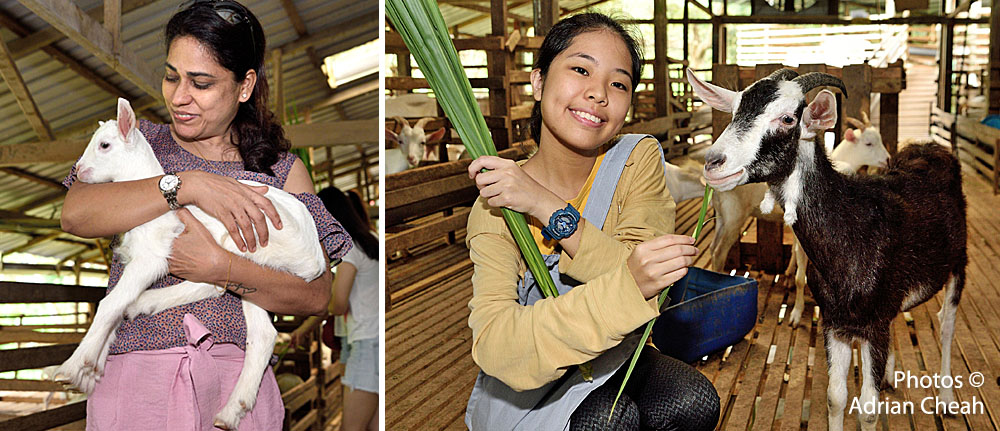
Cradling a cute, adorable kid, fur as white as snow in Balik Pulau is a comforting experience. Tucked away in a hamlet of Sungai Pinang is the Saanen Dairy Goat Farm managed by Mr Ho Juan Aun and his family.
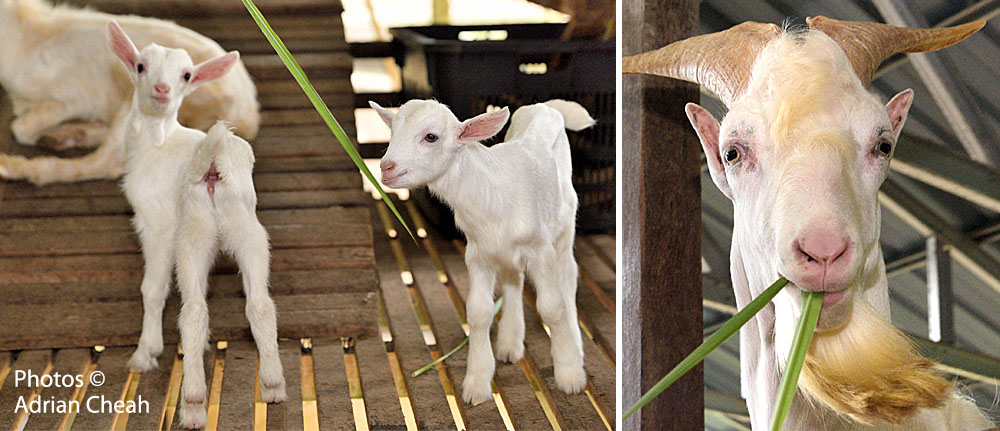
Initially, Mr. Ho bought eight Saanen kids from Australia (although Swiss in origin) as a hobby, not knowing that in years to come, he would be managing 120-140 heads. Saanen goats are one of the larger dairy goat breeds. Their milk production is high and the butterfat content is at the lower end of the goat milk spectrum. The goats are highly productive churning out around 20 litres of fresh milk daily (60 litres during peak seasons).
Migrating from China, Mr. Ho’s grandparents settled in Balik Pulau. Tilling the land planting vegetables and fruit trees, they managed to put food on the table. From such humble beginnings, they would be proud of what their grandson has achieved. Passion and hard work drove Mr. Ho and his wife to learn all that they possibly can about sustaining a productive and successful dairy farm. In 2005, they expanded the barn as well as the number of goats. By 2009, they had almost a hundred heads and became efficient in running the dairy farm. The next obvious step was to receive visitors. Up to this day, admission is free and they are happy to keep it that way. The Ho family is always at hand to greet visitors and provide information on the farm as well as the goats.
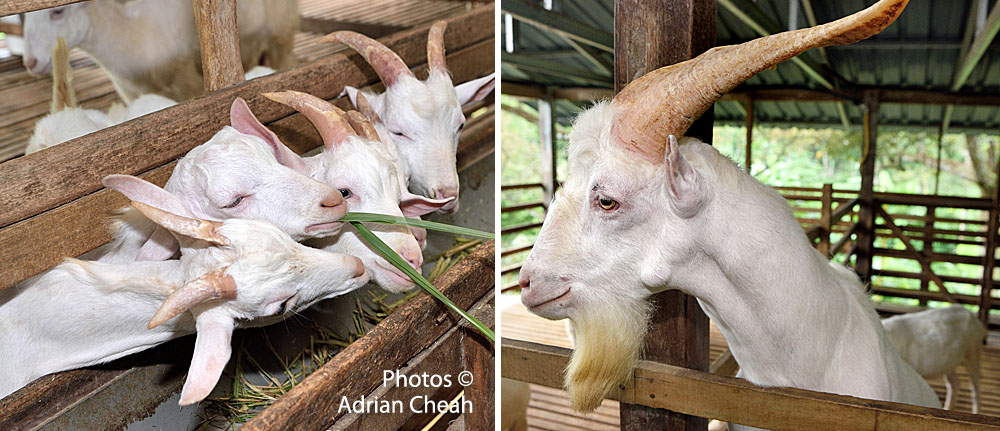
The bucks, weighing over 100 kg each, are much larger in size compared to the does (weighing below 80 kg). Daily both consume about 10 percent of the body weight to stay healthy and well-nourished. A doe takes 150 days (five months) from conception to deliver a newborn, often twins and sometimes triplets. This starts its daily milking process for up to 10 months. A doe should be allowed to dry up for at least two months after a run of milk production before breeding again.
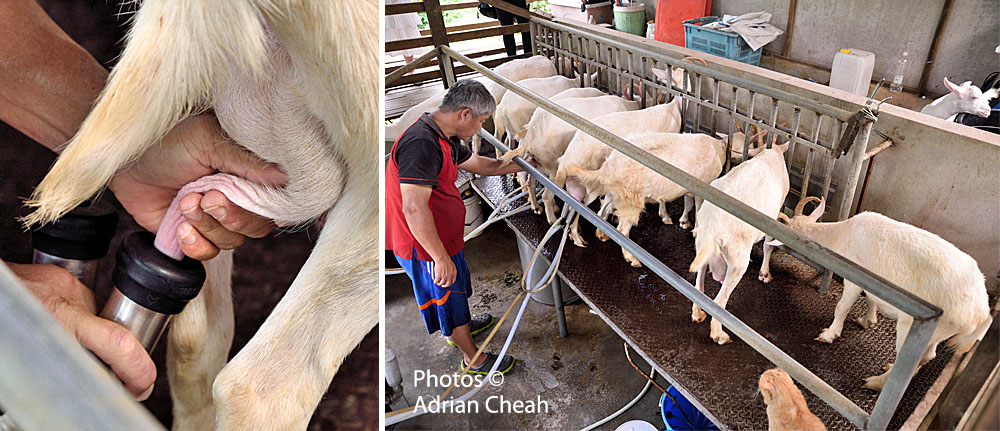
Milking the does are done around noon and visitors are welcomed to witness the process. Milking helps to quell the engorged udder and ease pain, which could otherwise lead to mastitis. A doe usually produces a high volume of milk, more than what is needed by the kid. Most goat farmers confine the kids overnight after they are two weeks old. After milking the does, the kids are allowed to nurse on demand.
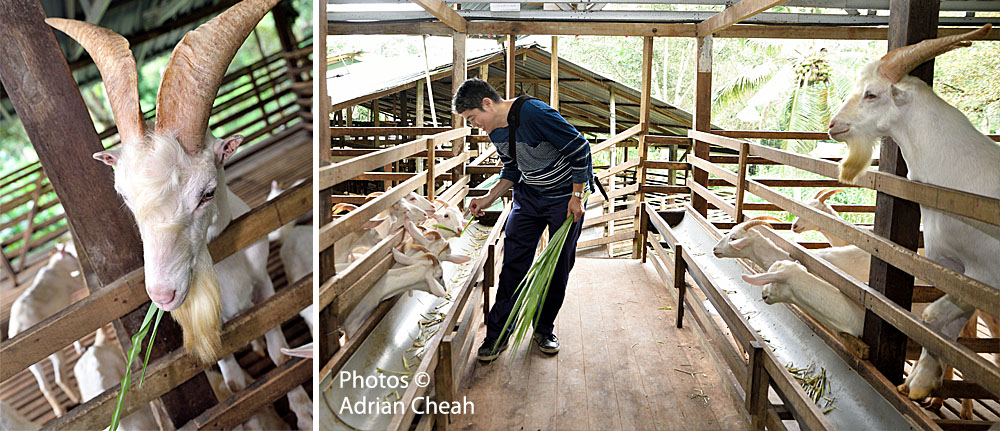
Visitors can support the farm by purchasing long stalks of freshly-cut Napiar grass to feed the goats or by buying some of its goat milk products. They include fresh goat's milk, yogurt drinks, ice creams, milk puddings and coffee with goat's milk. All these products are homemade and free from preservatives.
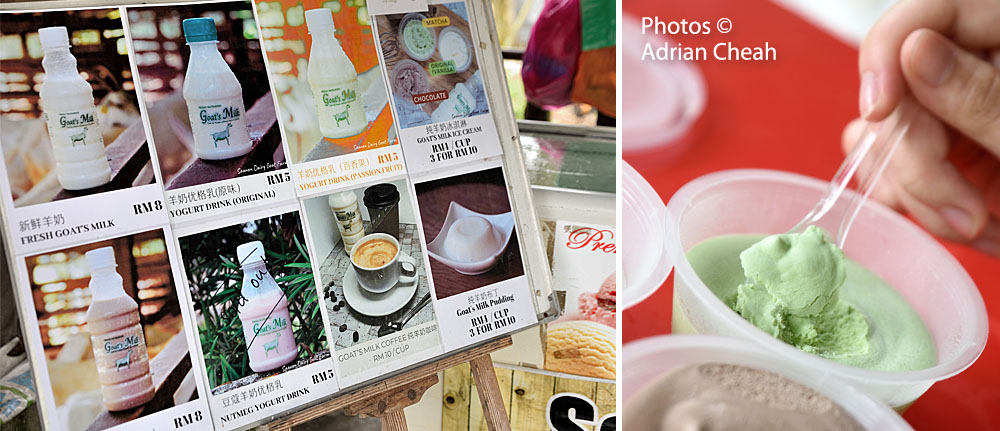
Since goat's milk is higher in calcium and healthy fat, it provides more nutritional value per gallon. Goat's milk is also easily digestible, even by those who are lactose intolerant. This is attributed to the protein structure of the milk compared to cow's milk. Goat's milk is also lower in cholesterol.
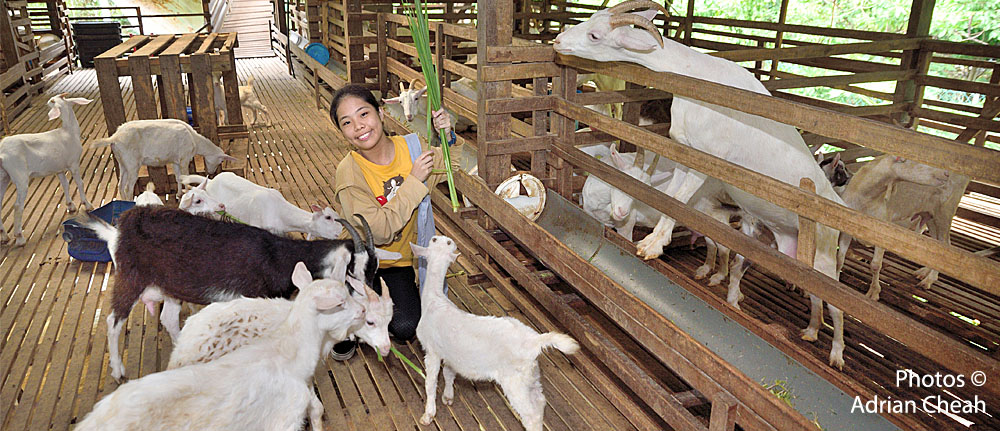
My daughter had a memorable time at the farm. She spoke to the goats as if they would somehow answer her in perfect English. Although unable to talk, the goats are highly intelligent (they perked up when approached with blades of grass); they are clean, agile and friendly. Like my daughter, children will have a blast here and their interaction with live animals would be priceless to capture on camera. Besides goats, there are other animals on the farm as well. There will be ample photographic opportunities and "instagrammable" moments for all.
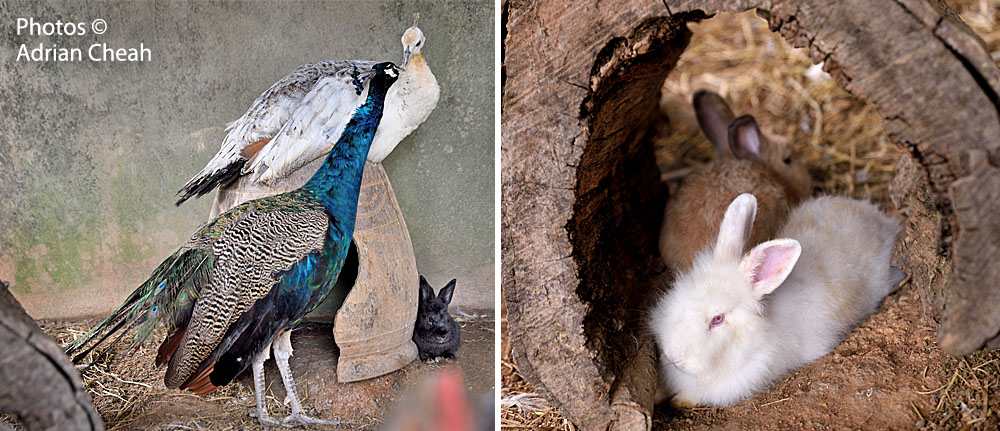
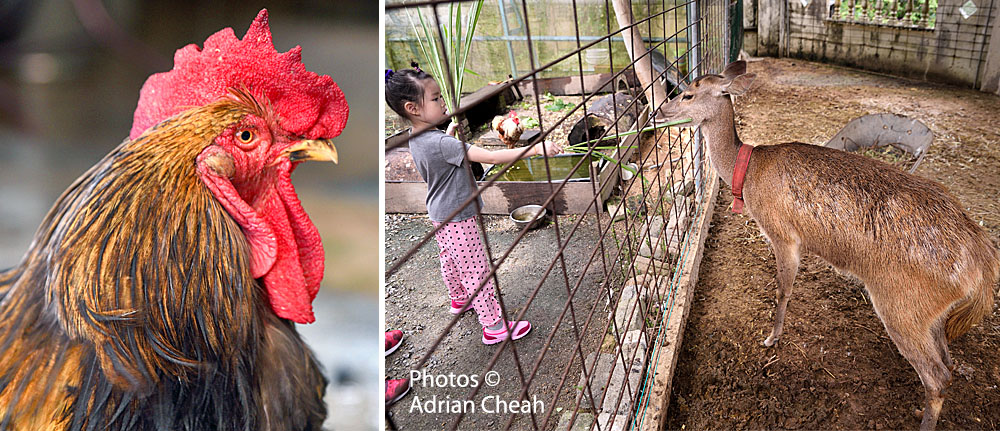
The friendly dynamic between the goats, farm animals and their caretakers is something to marvel upon. Caring for these animals is a heavy obligation and the Ho family does it with great pride and dedication.
---------------------------------------------------------
Written and photographed by Adrian Cheah
© All rights reserved
12 September 2020
________________________
Saanen Dairy Goat Farm
298 MK 1, Sungai Pinang, 11010 Balik Pulau, Penang.
GPS: 5.40545,100.20767
Opens daily: 10am-5pm
T: +6019 516 3017